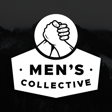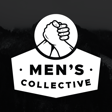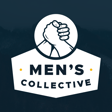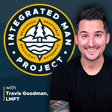
Innovating Masculinity: A Vision for A Healthier Male Identity (feat. Davide Pace)
Welcome to another profound episode of The Integrated Man Project. I’m your host, Travis Goodman, and today we're diving deep with a very special guest, Davide Pace. Davide is not just a senior psychology student with a keen focus on men's mental health; he's a visionary dedicated to shaping a new narrative around healthy masculinities.
In this episode, we explore Davide's transformative journey from grappling with negative thoughts and destructive behaviors to leveraging small, positive changes that have made a monumental difference in his life. Together, we tackle the internal strife many men face, battling shame, fear, worry, and self-doubt, and discuss the liberating power of self-awareness and the courage to change.
Davide brings his unique perspective on the dangers and benefits of risk-taking, sharing personal anecdotes and insights. His project for a local high school seeks to redefine masculine norms, while his "Innovating Masculinity" podcast is a testament to his commitment to this cause.
Our conversation goes beyond the individual struggle and looks at the broader context of masculinity today, questioning the toxic tropes and rigid ideologies of figures like Andrew Tate. We argue for integration, curiosity, and collaboration as essential tools for personal and collective growth.
As we conclude, you'll be inspired by Davide's honesty about setbacks, his passion for progress, and the small, yet mighty, steps he’s taking toward a kinder, more resilient, and service-oriented life. This is more than just a dialogue; it's a call to action for all of us to assess our own behaviors, learn from our mistakes, and embrace the non-linear journey of self-improvement.
So, tune in, engross yourself in this vital conversation, and maybe find that spark to ignite your own path to becoming a more integrated man. Let's get started.
JOIN THE MAILING LIST & GET INVOLVED!
WATCH ON YOUTUBE:
Connect and Support Davide:
LinkedIn: Davide Pace
Connect and Support Travis:
YouTube: Travis Goodman
Instagram: @integratedmanproject
Check out the Website: TBD





